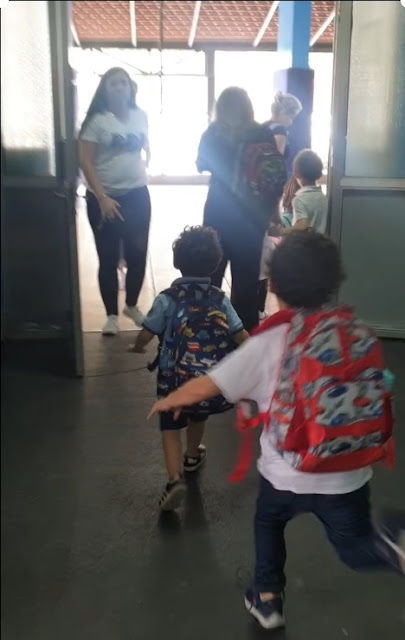Giving the World A Taste of Our Finest Wines
We Lebanese are a proud people.
We exalt our relatively tiny country -- how many of you haven’t memorized our land area of 10,452 km2?
We laud the glistening Mediterranean flanking us from the West, the Anti-Lebanon mountain range bordering us on the East, and the expansive greenery in between.
And we’re damn proud of our wines issuing forth from our verdant landscape.
We exalt our relatively tiny country -- how many of you haven’t memorized our land area of 10,452 km2?
We laud the glistening Mediterranean flanking us from the West, the Anti-Lebanon mountain range bordering us on the East, and the expansive greenery in between.
And we’re damn proud of our wines issuing forth from our verdant landscape.
Rightfully so. They’re terribly good. So good, in fact, that they’re gaining real notice abroad.
 |
| A glass of Chateau Marsyas sipped near the vineyards in the Bekaa Valley |
One such domain attracted a journalist from
France’s esteemed Le Monde. Rémi Barroux trekked from Paris to Beirut to meet the sibling duo -- Karim and Sandro Saadé -- behind Chateau Marsyas and Domaine de Bargylus. In
particular, Barroux was astounded by how the Saadés managed to push forward
brazenly with grape harvesting and wine production in light of the numerous
challenges facing this part of the world.
| Karim (left) and Sandro Saadé, the brothers behind Chateau Marsyas and Domaine de Bargylus |
Bargylus is the only winery in Syria, nestled in the
historic Lattakia area and reviving an ancient vineyard dating back to the time
of the Canaanites. Marsyas, named after the Bekaa’s archaic christening, is
situated near the villages of Kefraya and Tell-Denoub.
Both properties were carefully selected by the Saadés, whose
father is Syrian and mother Lebanese. They turned to winemaking to complement
the family businesses in land and maritime transport, tourism (Wild Discovery),
and real estate.
Barroux was particularly impressed with how the operation has
plowed on in spite of war conditions. Indeed, since 2011, grape samples have
arrived from Syria to Lebanon via taxi, to assess when best to harvest. Sure,
the logistics are not so straightforward and rather costly, but the Saadés push
on. Thankfully, Bargylus has been mostly shielded from the war, though stray
mortars have grazed plants, and occasional combat forces field workers to
recoil from the action.
Unlike its Syrian counterpart, Marsyas is in an idyllic
state of calm. We had the opportunity to visit the vineyards last week, and we were awestruck by the perfectly combed rows of wine-to-be at 1,000
meters' altitude.
 |
| Marsyas' vineyards |
Neighbored by other wineries like Kefraya, Musar, and St. Thomas as well as Daher Foods' Poppins plant, Marsyas sits on red, iron-laden
terrain which together with white stones form a clay-limestone growing medium
well-suited to the grape vines.
The cellar houses close to two dozen stainless steel tanks where
the grape derivative is fermented. But the Saadé family isn’t looking for high
volumes. Annual production of Chateau Marsyas—comprising red, white,
and a medium range cuvée called B-Qa released in 2015—weighs in at 100,000
bottles. Bargylus is a hair less than half that.
 |
| Stainless steel vessels where fermentation takes place |
And yet the world is getting a taste of this liquid gold. Japan, Hong
Kong, Dubai, France, Germany, Belgium and the UK import and retail them at wine
shops and restaurants, including the likes of Michelin-starred venues by Gordon
Ramsay and Joël Robuchon.
Kefraya Village
Jeb Jannine Road



The west Bekaa area is perhaps my favorite in Lebanon, and this is exactly why. I really really enjoyed this read! Cheers darling!
ReplyDeleteThanks, Serene -- I have grown to eagerly anticipate your input on my posts. You should know how much I appreciate your readership and support <3
Delete